Subscribe to ShahidulNews
Abir Abdullah Presents at Drik India
on 4th September 2010, Drik’s 21st Anniversary
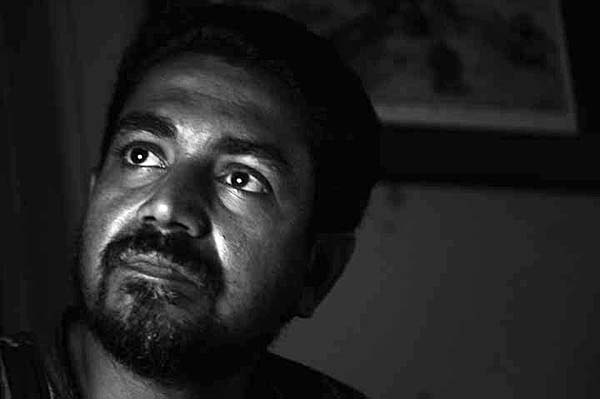
?Mahasweta Devi Close-up?
Best Short Documentary
3rd International Documentary & Short Film Festival of Kerala (2010)
Three years ago, a team of a few professionals from Drik India, started off with a PD 170 camera following the legendary writer & activist Mahasveta Devi on her journeys into the remote tribal belts of India, where her activism to support the daily struggle of the marginalized has long taken a human face with an epical significance. The endeavor of the team was to record the journey of an activist writer who refuses to stop even at the age of 85. Thus, ?Journeying with Mahasveta Devi?, a film on her crusading way of life was made in 2009. The film was critically acclaimed and was showcased in several festivals.
But that was not the end. For a person of the stature of Mahasweta Devi who unfolds endlessly both in her sphere of activities as well as her fascinating personality, a single film was definitely not enough. We set about making the second film in the trilogy that was already planned upon. ?Mahasweta Devi Close-up? is a sequel to our earlier film ?Journeying with Mahasweta Devi?. The viewed and the viewer, the act and the response, form the basic pattern of this film and closes up further with both the inner-self and the outer-self of Mahasveta Devi.
The film was premiered at the 3rd International Documentary & Short Film Festival of Kerala (2010), where it won the award for the Best Short Documentary in Competition . This is the second film award that we received this year (?Making The Face?, the film based in Manipur, North East India, won the National Award for the best film on family welfare, earlier this year; though, it was an award for 2007 productions). ?Mahasweta Devi Close-up? is directed by Moni Bency & Joshy Joseph. The duration of the film is 39 minutes.
The citation of the jury who chose the film, for the award says ?Rather than use the standard narrative conventions that an autobiography of a celebrated author would involve the film uses an extremely innovative form to stage an encounter between two art forms, literature and cinema? .
While the immense energy that is Mahasveta Devi, never ceases to surprise us with her dynamism, an award is also definitely a booster for us to looking forward to many more similar endeavors in the near future, with you, friends who always remain with us.
Drik India cordially invites you to the solo performance by Parnab Mukherjee on the roof top of Drik India’s office on 23 May, 2010 at 6 pm.
The address of Drik India is 17/1 C, Ganga Prasad Mukherjee Road, Bhowanipore ( just behind Chakraberia Haw”.
Event: Invitation to Parnab Mukherjee’s performance at Drik India
What: Performance
Start Time: Tomorrow, 23 May at 18:00
End Time: Tomorrow, 23 May at 20:30
Where: Kolkata
Necropolis: rehearsing Koltes in such times
A performance collaboration by Best of Kolkata Campus with Five Issues( a performance-publication interface project )
dedicated to the 60th anniversary of the Universal Declaration of Human Rights
Solo performance, Direction and dramaturgy: Parnab Mukherjee
Language: English
Duration: 65 minutes without any intermission
Inspired from In the Solitude of Cottonfields by Bernard Marie Koltes
Additional text: Thangjam Iboposhak, Nirmalendu Goon, Manto, Hijam Irabot, Saratchand Thiyam, Rajkumar Bhubonsana, Rabindranath Tagore and Mishing and Kokbork proverbs
Collaboration: Gautam Bajoria and Five Issues
Synopsis:
Necropolis is a part of a three part repertoire called The Trilogy of Unrest, the first two being Hamletmachine: Images of Shakespeare-in-us and an installation performance with a series of visual artistes called This room is not my room.
The repertoire has toured the north-east, Siliguri, Kolkata, Pune and Mumbai. The touring performance will culminate in the release of a special commemorative edition of Five Issues on Indian theatre and subversions-dedicated to Badal Sircar, Vijay Tendulkar, Bishnu Rabha, Ranjabati Chaki Sircar, Chandrasekhar and Arambam Samarendra.
Necropolis has opened three international events: the prestigeous Amnesty International Festival on the 60th year Universal Declaration of Human Rights on December 5, 2008 at the India Islamic Centre in New Delhi, the 9th conference of Comparitive Literature Association of India at the Hyderabad Central University on January 27, 2009 and the first Patumthani International Festival in Bangkok orgsnised by Mordokmai theatre group(the show was held on February1, 2009 at the Supreme Artist Hall-Patumathani . The production has also closed two important festivals. It has been the final event at the Chhobi Mela V-an International Festival of Photography organised by Drik at Dhaka and the inaugural Awami theatre festival organised by Awam Jaipur on March 23, 2009. It was the first play from the Indian subcontinent to perform in East Timor. Necropolis was also performed as an outreach for the Singapore International Photography Festival.
The production has completed more than 50 shows.
Summary:
Two men meet on the street. They have to make a deal. Or rather they want to make a deal. One has something to sell and the other needs something to buy. The Dealer is unsure what to peddle or would he want to peddle anything in the first place. The Client knows what he has to buy but does not know exactly what to. A cat and mouse game begins between these nameless, faceless, shapeshifters who have to make a transaction which they are not sure why would make. For the next chunk of minutes they indulge in selling and buying of concepts without transacting anything. But they did make a deal.
What are they selling? Or rather who is buying? Are technology, displacement, memories of a genocide the new road-map of the new universe. Are we such theoritical creatures that we have lost the power to engage with real issues and provide a balm to the displaced, destitute, fried, barbecued, roasted human-folk.?
More often than not we are groping for words to describe routine violence. Routine cases of racial profiling. Of exclusion. Grappling with stereotypes. Cliches. Biases on the basis of human rights. Unethical treatment of workers by the globalised companies running roughshod over localised needs, the culture of building dams and more dams, refusal to discuss the politics of the body. Biases on the basis of sexual orientation.
We are looking at images and we think either they supplement the words or complement them. Is image only a memory tool? Is it just a visual metaphor? Is it just to learn things by heart? By rote? What is a performance? Merely a text or an improvisation or?a series?of theatre exercises which are prescribed as typical workshop methods? The performance probes into the image -word relationship?gets into the rationale of images…
What images are we looking at? Nelllie-Morichjhaanpi, Malom, Mokokchung, Arrest of Binayak Sen in Chattisgarh….What was the process of transforming the “us” into “them”…..How are “they” celebrating diversity and “their” culturalness in these times? The performance negotiates these terrains. By the time the performance ends nobody has bought, nobody has sold.
Yet those two individuals have transformed themselves enough to be probably up for sale. As the next set of clients gatecrash into the narrative.
Or do we end up being commodities showcased in the glass windows for the global window shopping….and all this happens while we are window-shopping ourselves.
About the Director:
An independent media analyst and a performance consultant by profession, Mr. Parnab Mukherjee is one of the leading alternative theatre directors’ of the country. He divides his time between Kolkata, Imphal and the Darjeeling hills. Currently, a consultant with a publication initiative, he has earlier worked for a sports fortnightly, an English daily and a Bengali daily. He is an acclaimed authority on Badal Sircar’s theatre, Shakespeare-in-education and specialises in theatre-for-conflict-
resolution and theatre-of-the-campus.
He is considered as a leading light in alternative theatre in the country having directed more than 50 productions of performance texts including three international collaborations. He has also performed 14 full length solos which include an acclaimed series of plays on trafficking, HIV and segregation called the River series, Living Text series and Foothills to Hills, a series of plays with Darjeeling as the living inspiration.
Parnab has created a personal idiom of using spaces for theatre exploration. He has extensively worked on a range of human rights issues which include specific theatre projects on anti-uranium project struggles in Jadugoda and Turamdihi, Save Tenzin campaign, rehabilitation after industrial shutdowns, shelter issue of the de-notified tribes, a widely acclaimed cycle of 12 plays against Gujarat genocide, and a range of issues on north-east with special reference to Armed Forces Special Powers Act, 1958.
Four of his major workshop modules: Freedomspeak, The Otherness of the Body, Conflict as a Text and The Elastic Body have been conducted with major theatre groups and campuses all over the country. He has written five books on theatre and his production of Tagore’s Muktadhara in Darjeeling and Sikkim is an important landmark to raise voice on citizens affected by projects in Teesta.
Best of Kolkata Campus:
Best of Kolkata Campus, an autonomous performance collective and a non-profit performance foundry, has completed 15 years of doing dedicated theatre in found spaces and public arena. It has produced a number of young theatre workers who are active in the cultural and audio-visual training arena. It is a loosely formed collective of individuals who believe that theatre is an important an independent tool of dissent outside the ambit of party politics.
Some of the most memorable productions of the group include Hamletmachine, The Country with a post office, Antigone, Raktakarabi-an urban sound opera, Bhul Rasta, Kasper-dipped and shredded, They Also Work, River Monologues, Dead-Talk series, Conversations with the dead, Crisis of Civilisation, Shakespeare shorts, Man to Man talk, Inviting Ibsen for a Dinner with Ibsen, Your path wrong path and And the Dead Tree Gives no Shelter.
The group also works in the field of installation performances and theatre-of-conflict-resolution and peace studies. The collective has travelled extensively all over the subcontinent doing shows, giving workshops and exploring alternative performance idioms.
“Other Side India” in Private Magazine
“Whenever people talk about ?Indian photography? it obviously leads to a debate and discussion about how appropriate it is to term it as ?Indian photography? rather than ?photography in India?.The question is: to what extent has photography in India been Indianized?”
The contributing photographers of this issue have addressed the complex nature of the time and space evolving around the formation of an identity through works that have crucially explored the issues of marginalization and dislocation.” [Suvendu Chatterjee]


The prestigious Italian photography magazine ‘PRIVATE’ ( International Review of Black and White Photographs and Texts) has just come out and the present issue ‘Other Side India’ is on India contributed by the following 16 Indian Photoagraphers:
Arindam Mukherjee,Bijoy Chowdhury,Faheem Qadri,Gauri Gill,Kushal Ray,Manoj Kumar Jain,Nilayan Dutta,Prabuddha Dasgupta,Prashant Panjiar,Saibal Das,Shantanu Mukherjee, Sucheta Das,Sudharak Olwe,Srinivas Kurungati,Swapan Nayak and Zishaan Akbar Latif.





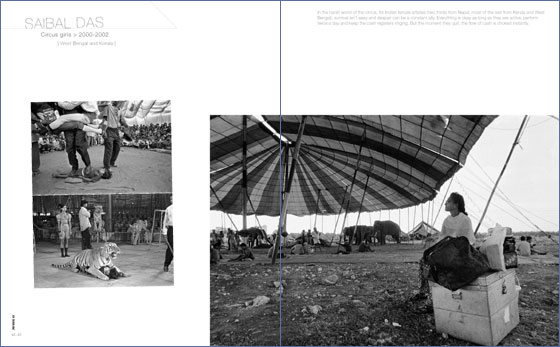








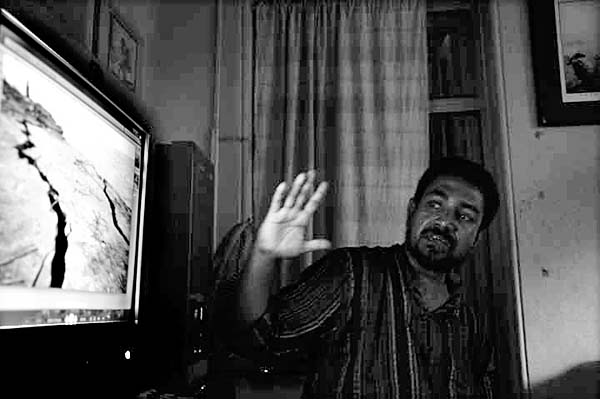
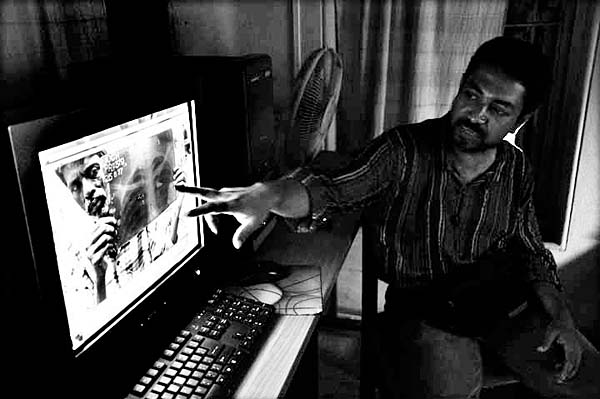
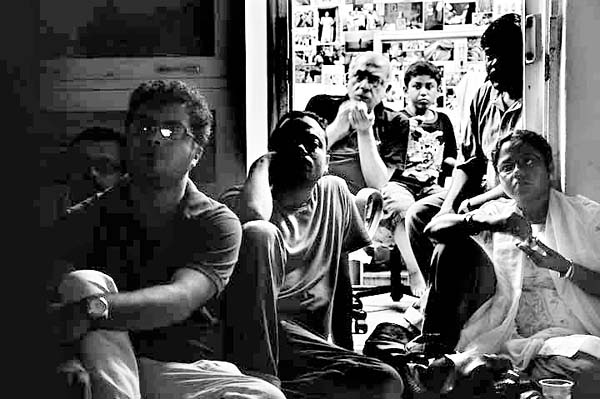
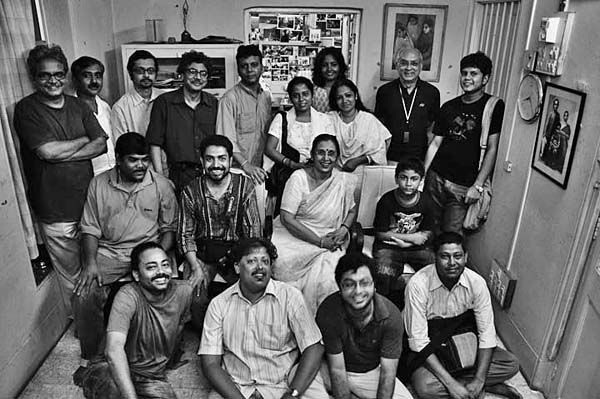
Be First to Comment